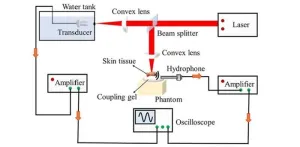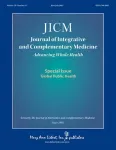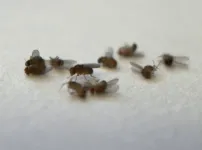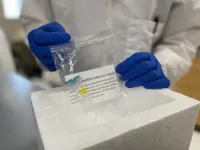(Press-News.org) NEW YORK, June 13, 2023 – With the potential for artificial intelligence (AI) to create both massive disruption and great opportunity within the music industry, ASCAP — the only US PRO that operates on a not-for-profit basis — is introducing a slate of AI initiatives to help music creators navigate the future while protecting their work. These newly announced initiatives include: adoption by the ASCAP Board of Directors of a set of key ASCAP AI principles, creator education, startup incubation and policy development. Building upon ASCAP’s strong track record of technology advances, industry advocacy and music royalty growth, these initiatives place ASCAP at the forefront of exploring and shaping the future of music and AI.
“ASCAP has been adapting to disruption for more than 100 years. AI doesn’t scare us because we see technology as an opportunity to innovate for our songwriter, composer and music publisher members. The future is bright and we have our helmets on to fight the fight to protect the rights of music creators.” said ASCAP Chief Executive Officer Elizabeth Matthews.
“As the only creator-first US PRO, ASCAP always places our members at the core of everything we do and listening to them informs our strategy,” said ASCAP Chief Strategy & Digital Officer Nick Lehman. “Our members are telling us that they want ASCAP to help them navigate technology disruption, advocate for better regulation in AI and pursue compensation if their music is used in AI-generated content.”
With the following AI initiatives, ASCAP plans to educate and inspire its members, champion music creator rights and help shape how new technologies are deployed and licensed across industry sectors:
2023 ASCAP Lab/NYC Media Lab Music and AI Challenge
In 2019, ASCAP launched the ASCAP Lab to drive innovation for its next century of growth. The multi-pronged effort is designed to explore how advanced technologies, new business approaches and creative collaboration can drive value for ASCAP music creator members and licensees. In each of the last three years, the ASCAP Lab has run an accelerator program in partnership with the NYC Media Lab, led by the NYU Tandon School of Engineering, exploring new technologies such as the metaverse, augmented reality, spatial audio and computer vision, helping to incubate more than a dozen startups and university research projects.
The 2023 ASCAP Lab Music and AI Challenge is designed to identify creative, cutting-edge concepts at the intersection of music and artificial intelligence, enabling ASCAP to work closely with the tech community to help guide the development and application of this game-changing technology for the benefit of music creators. Five teams have been selected to receive grants and mentorship to develop and expand upon their emerging technologies during the 12-week challenge. The ASCAP Lab and NYC Media Lab are excited to announce this year’s teams.
DAACI is a comprehensive AI system that composes, arranges, orchestrates and produces authentic, high-quality and original music with emotional and narrative awareness, especially for composers for video games, the metaverse, digital worlds and dynamic virtual experiences. https://daaci.com/
Infinite Album uses AI to generate continuous copyright-safe video game music that can react to game play in real time and can be customized by gamers and viewers in collaborative, interactive and monetizable ways. www.infinitealbum.io
Overture Games builds video games for beginner musicians designed to make practicing more fun and reduce burnout/quitting by using AI-based pitch detection to provide responsive visual feedback based on the musician’s playing. www.overture.games
Samplifi combines classical digital signal processing techniques with the latest advances in AI to isolate and enhance the auditory information needed to harmonically orient oneself within a piece of music, making the sonic world easier to navigate for hearing-impaired musicians. www.samplifi.net
Sounds.Studio by Never Before Heard Sounds is a browser-based music production platform that leverages AI to make producing music faster and more accessible with assistive tools like stem splitting, vocal conversion, timbre transfer and automatic song alignment. www.sounds.studio
Throughout and after the 12-week challenge, the teams will share their stories, progress and innovations with ASCAP members, some of whom will be involved in the mentoring and beta-testing processes of the program. More information on the ASCAP Lab and the 2023 teams can be found at www.ascaplab.com.
The ASCAP Experience, June 21
The ASCAP Experience, ASCAP’s signature event created to inspire, educate and connect songwriters and composers, will host a panel dedicated to AI in Los Angeles on June 21. “Intelligently Navigating Artificial Intelligence” brings together knowledgeable experts from the creative, tech and business fields for a state-of-the-union on AI in music. The session will educate ASCAP member attendees on the potential of AI to change how music is made and consumed, how ASCAP is addressing these evolving opportunities and challenges and how to make informed decisions about using AI tools while protecting one’s intellectual property. Panelists include:
Lucas Cantor, Composer, ASCAP member
Rachel Lyske, CEO of DAACI
Nicholas Lehman, Chief Strategy & Digital Officer, ASCAP
More information about the ASCAP Experience is available at www.ascapexperience.com.
ASCAP AI Symposium, July 19
On July 19, following its Annual Meeting in New York City, ASCAP will present a half-day symposium on AI that dives deep into the broad range of opportunities and issues catalyzed by the proliferation of AI applications in the music industry. Details on the event’s speakers and panels will be announced soon. The ASCAP AI Symposium will be open to ASCAP members only.
ASCAP AI Principles and Advocacy
ASCAP remains at the forefront of policy making with respect to AI in the areas of copyright and licensing, and the ASCAP Board of Directors has adopted a set of key ASCAP principles guiding the organization’s response to AI. Those principles are:
Human Creators First: Prioritizing rights and compensation for human creativity
Transparency: In identifying AI vs. human-generated works and retaining metadata
Consent: Required to authorize works for inclusion in an AI training license
Compensation / Free Market: Willing buyer, willing seller licensing framework
Credit: When creators’ works are utilized to produce new AI-generated music
Global Consistency: An even playing field that values intellectual property globally
ASCAP is working to ensure that its over 920,000 members are heard in DC policy debates, briefings and roundtables and will educate and mobilize its members to protect their musical contributions.
About ASCAP
The American Society of Composers, Authors and Publishers (ASCAP) is a membership association of more than 920,000 songwriters, composers and music publishers, and represents some of the world’s most talented music creators. In 2022, ASCAP reported record-high financial results of $1.522 billion in revenues and $1.388 billion available in royalty distribution monies to its members. Over the last eight years, ASCAP has delivered a 6% compound annual growth rate for total revenues, and a 7% compound annual growth rate for total royalty distributions to members.
Founded and governed by songwriters and composers, ASCAP is the only performing rights organization in the U.S. that operates as a not-for-profit. ASCAP licenses a repertory of over 18 million musical works to hundreds of thousands of businesses that use music, including streaming services, cable television, radio and satellite radio and brick and mortar businesses such as retail stores, hotels, clubs, restaurants and bars. ASCAP collects the licensing fees; identifies, matches and processes trillions of performances every year; and returns nearly 90 cents of every dollar back to its members as royalties. The ASCAP blanket license offers an efficient solution for businesses to legally perform ASCAP music while respecting the right of songwriters and composers to be paid fairly. ASCAP puts music creators first, advocating for their rights and the value of music on Capitol Hill, driving innovation that moves the industry forward, building community and providing the resources and support that creators need to succeed in their careers. Learn more and stay in touch at www.ascap.com, on Twitter and Instagram @ASCAP and on Facebook.
About the NYC Media Lab
The NYC Media Lab connects media and technology companies with both NYU Tandon and industry affiliates to drive innovation, entrepreneurship and talent development. Our interdisciplinary community of innovators from industry and academia allows our network to gain valuable insights, explore the potential of emerging technology and address the challenges and opportunities created by the rapidly evolving digital media landscape. Learn more at engineering.nyu.edu/nyc-media-lab.
# # #
CONTACT:
Cathy Nevins, ASCAP
cnevins@ascap.com
Hannah Schwartz, Shore Fire for ASCAP
hschwartz@shorefire.com
END
ASCAP introduces slate of AI initiatives to help music creators navigate the future while protecting their work
Announces 2023 ASCAP Lab Music and AI Challenge Teams, ipcoming ASCAP Experience AI Panel, and July ASCAP AI Symposium; ASCAP Board of Directors adopts key ASCAP AI principles
2023-06-13
ELSE PRESS RELEASES FROM THIS DATE:
Study in mice links heat-damaged DNA in food to possible genetic risks
2023-06-13
Researchers have newly discovered a surprising and potentially significant reason why eating foods frequently cooked at high temperatures, such as red meat and deep-fried fare, elevates cancer risk. The alleged culprit: DNA within the food that’s been damaged by the cooking process.
As shown for the first time known to the authors, this study by Stanford scientists and their collaborators at the National Institute of Standards and Technology (NIST), the University of Maryland, and Colorado State University reveals that components of heat-marred DNA can be absorbed during digestion and incorporated into the DNA of the consumer. That uptake directly ...
UC Irvine neuroscientists develop ‘meta-cell’ to move Alzheimer’s fight forward
2023-06-13
Irvine, Calif., June 13, 2023 – University of California, Irvine neuroscientists probing the gene changes behind Alzheimer’s disease have developed a process of making a “meta-cell” that overcomes the challenges of studying a single cell. Their technique has already revealed important new information and can be used to study other diseases throughout the body. Details about the meta-cell – created by researchers with the UCI Institute for Memory Impairments and Neurological Disorders, known as UCI MIND – were published in the online journal Cell Press.
Technologies called transcriptomics that study sets of RNA within organisms ...
What’s an underrated way to study decisions? Think out loud
2023-06-13
Think fast: if you’re running a race and overtake the person in second place, what position are you in? Many people instinctively respond that you’re in first place. However, upon reflection, some people realize the correct answer is that you’re now in second place: the former number-two runner slipped into third as you overtook them.
Trick questions of this kind are invaluable to cognitive scientists because they shed light on the cognitive quirks that shape our decision-making. “These aren’t just trick questions,” explained Nick Byrd, a philosopher-scientist and Intelligence Community Fellow who led the research at Stevens ...
Pass the salt: This space rock holds clues as to how Earth got its water
2023-06-13
Sodium chloride, better known as table salt, isn't exactly the type of mineral that captures the imagination of scientists. However, a smattering of tiny salt crystals discovered in a sample from an asteroid has researchers at the University of Arizona Lunar and Planetary Laboratory excited, because these crystals can only have formed in the presence of liquid water.
Even more intriguing, according to the research team, is the fact that the sample comes from an S-type asteroid, a category known to mostly lack hydrated, or water-bearing, minerals. The discovery strongly suggests ...
Understanding tumor microenvironment with photoacoustic spectral analysis
2023-06-13
Tumors are not just isolated clumps of abnormal cells but are associated with more complex system known as the “tumor microenvironment” (TME). Over the past few years, research has revealed that the TME consists of a complex combination of blood vessels, connective tissue, and a matrix of extracellular proteins and molecules. Most importantly, the composition of the TME is different from that of nearby healthy tissues. In particular, the lipid and collagen contents of tumors differ from those of normal tissues, making them important potential biomarkers for diagnosing various types of ...
Special issue of JICM on global public health and the Declaration of Astana
2023-06-13
A special focus issue of the peer-reviewed Journal of Integrative and Complementary Medicine (JICM) on Global Public Health is a response to the Declaration of Astana, developed by the World Health Organization and UNICEF. With contributions from traditional, complementary, and integrative medicine (TCIM) scholars and thought leaders around the world, the issue showcases research and scholarship examining the opportunities and challenges that TCIM approaches offer global health to governments and health service providers seeking to fulfill ...
ASU establishes ʻĀkoʻakoʻa, a new collaborative effort to seed renewed connection between human and coral communities in Hawaiʻi
2023-06-13
With a group of core partners, Arizona State University is creating a new $25 million collaboration to preserve and restore vitality to Hawaiʻi’s coral reefs and the health of its coastlines.
The community-based effort looks to fuse state-of-the-art science programs with the leadership and cultural knowledge of Hawaiʻi’s community partners to enable coastal and reef sustainability for generations to come. Named ʻĀkoʻakoʻa (pronounced ah kō-a kō-a), the effort shares a dual meaning ʻto assemble’ and ‘coral.’
“For ...
Men and women with migraine both carry an increased risk of ischemic stroke
2023-06-13
Women and men who experience migraine headaches also carry an elevated risk of having an ischemic stroke, but women alone may carry an additional risk of heart attack and hemorrhagic stroke, according to a new study led by Cecilia Hvitfeldt Fuglsang of Aarhus University, Denmark publishing June 13th in the open access journal PLOS Medicine.
People diagnosed with migraine are believed to have a higher risk of experiencing a heart attack or stroke before the age of 60. Previous studies have suggested ...
How seeing corpses reduces the lifespan of flies
2023-06-13
Researchers led by Christi Gendron at the University of Michigan, US, have found the link between death perception and reduced aging in flies. Their new study, published June 13th in the open access journal PLOS Biology shows that a specific group of brain cells in the fly, called R2 and R4 neurons, are activated when flies encounter other dead flies, and that this increased activity leads to more rapid aging.
Aging is a complex process that can be affected by both genetics and the environment. While we know that perceptual experiences can affect ...
Study develops primer scheme for human monkeypox virus that can be plugged into currently existing amplicon-based sequencing and bioinformatics infrastructure
2023-06-13
Study develops primer scheme for human monkeypox virus that can be plugged into currently existing amplicon-based sequencing and bioinformatics infrastructure; this approach has enabled public health laboratories to quickly adapt their genomic workflows in response to a newly emerging pathogen.
#####
In your coverage, please use this URL to provide access to the freely available paper in PLOS Biology: http://journals.plos.org/plosbiology/article?id=10.1371/journal.pbio.3002151
Article Title: Development of an amplicon-based sequencing approach in response ...
LAST 30 PRESS RELEASES:
Study finds Earth may have twice as many vertebrate species as previously thought
NYU Langone orthopedic surgeons present latest clinical findings and research at AAOS 2026
New journal highlights how artificial intelligence can help solve global environmental crises
Study identifies three diverging global AI pathways shaping the future of technology and governance
Machine learning advances non targeted detection of environmental pollutants
ACP advises all adults 75 or older get a protein subunit RSV vaccine
New study finds earliest evidence of big land predators hunting plant-eaters
Newer groundwater associated with higher risk of Parkinson’s disease
New study identifies growth hormone receptor as possible target to improve lung cancer treatment
Routine helps children adjust to school, but harsh parenting may undo benefits
IEEE honors Pitt’s Fang Peng with medal in power engineering
SwRI and the NPSS Consortium release new version of NPSS® software with improved functionality
Study identifies molecular cause of taste loss after COVID
Accounting for soil saturation enhances atmospheric river flood warnings
The research that got sick veterans treatment
Study finds that on-demand wage access boosts savings and financial engagement for low-wage workers
Antarctica has lost 10 times the size of Greater Los Angeles in ice over 30 years
Scared of spiders? The real horror story is a world without them
New study moves nanomedicine one step closer to better and safer drug delivery
Illinois team tests the costs, benefits of agrivoltaics across the Midwest
Highly stable self-rectifying memristor arrays: Enabling reliable neuromorphic computing via multi-state regulation
Composite superionic electrolytes for pressure-less solid-state batteries achieved by continuously perpendicularly aligned 2D pathways
Exploring why some people may prefer alcohol over other rewards
How expectations about artificial sweeteners may affect their taste
Ultrasound AI receives FDA De Novo clearance for delivery date AI technology
Amino acid residue-driven nanoparticle targeting of protein cavities beyond size complementarity
New AI algorithm enables scientific monitoring of "blue tears"
Insufficient sleep among US adolescents across behavioral risk groups
Long COVID and recovery among US adults
Trends in poverty and birth outcomes in the US
[Press-News.org] ASCAP introduces slate of AI initiatives to help music creators navigate the future while protecting their workAnnounces 2023 ASCAP Lab Music and AI Challenge Teams, ipcoming ASCAP Experience AI Panel, and July ASCAP AI Symposium; ASCAP Board of Directors adopts key ASCAP AI principles







